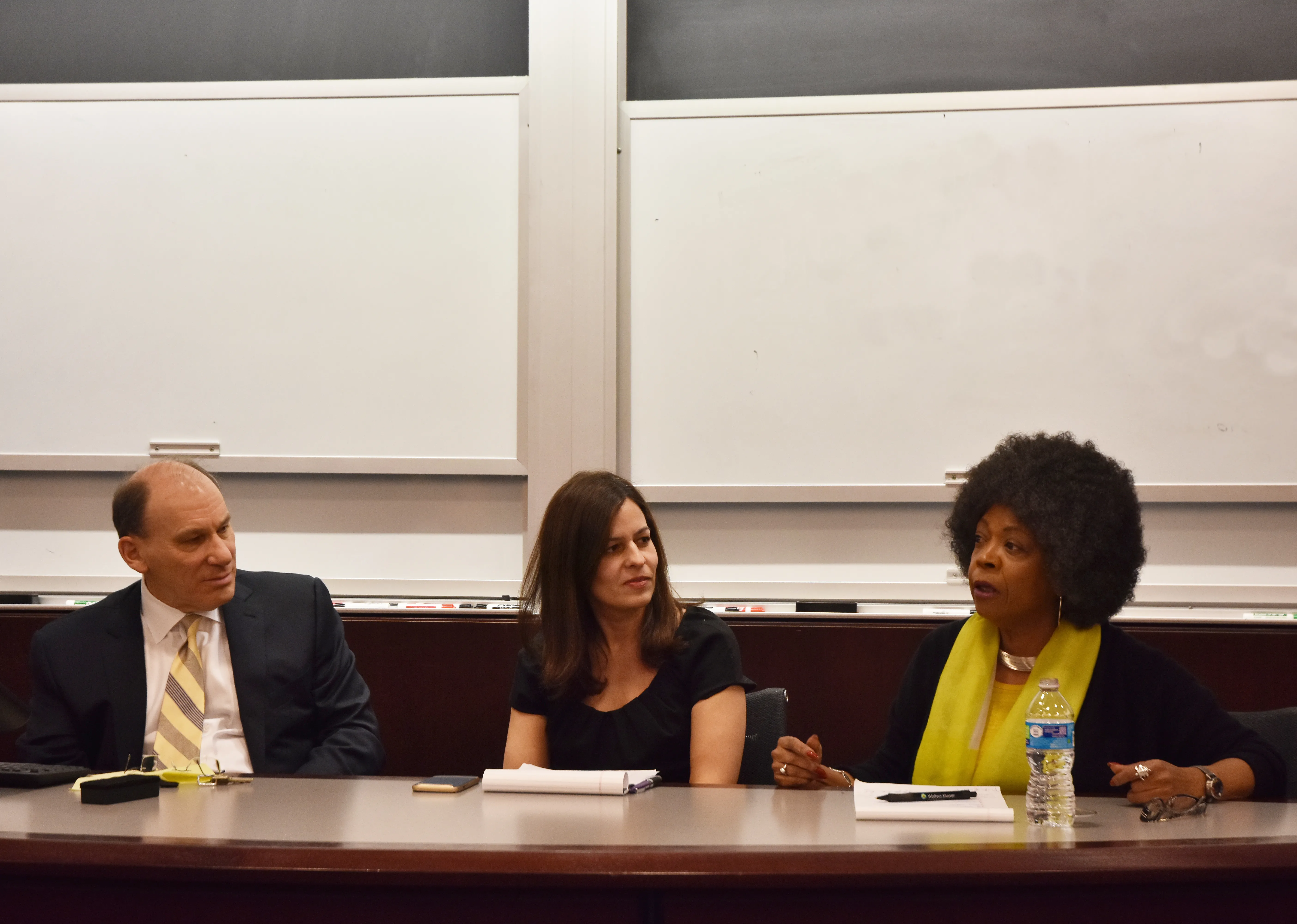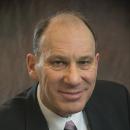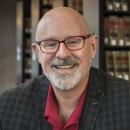Civility, Free Speech, and the Learning Environment

In an honest discussion that highlighted the value of both compassionate and vigorous discourse, four members of the Law School faculty advanced a national conversation that has been widely cast as a tussle between the right to free speech on university campuses and the need to bolster efforts toward diversity and inclusion—and they began by questioning whether those goals are really at odds.
“It’s a common framing, but I think it’s wrong, and I think it’s destructive,” said David A. Strauss, the Gerald Ratner Distinguished Service Professor of Law. “That has a tendency to divide people into camps. But I think what we’re dealing with is a single set of objectives, not a division. Free speech and diversity and inclusion are all efforts to accomplish the same goal. That’s not to say that these are easy questions; these are very difficult issues in a lot of ways. But it’s not, ‘Which side are you on?’”
Clinical Professor Herschella G. Conyers, a Director of the Criminal and Juvenile Justice Clinic agreed, calling it a “false tension, and a very, very destructive one.”
“Free speech here at Chicago really is about being able to say that we will talk openly about racism, sexism, and homophobia in an open environment, without the name-calling,” she said.
The hour-long discussion, part of an ongoing Law School series designed to spur conversation and add insights on issues ranging from implicit bias to the ways in which these issues impact learning environments, also included Assistant Clinical Professor Claudia Flores, Director of the International Human Rights Clinic, and was moderated by Deputy Dean Tom Ginsburg, the Leo Spitz Professor of International Law.
“As with all national conversations, it is important that we think about it ourselves … a lot of times, a national conversation can get distorted in really fundamental ways, and people end up yelling past each other,” Ginsburg said. “That’s not what we’re about in this community.”
Although the professors emphasized the need for compassion and civility—noting, for instance, that we don’t need to protect our right to free speech by using unnecessarily offensive words—they also cautioned against shying away from real issues and hurts.
“One reason we’re not better at these conversations after all these years is that we put twice as much energy into avoiding them, and we put twice as much energy into coming up with new phrases that don’t mean what we think they mean,” Conyers said. Part of having better discussions, she said, is to acknowledge that we all have implicit biases that influence our thinking.
“To eradicate it, we have to admit it,” she said.
Flores also emphasized the need to acknowledge and understand implicit bias and the impact of stereotypes—and to recognize that part of the reason conversations about diversity and inclusion are so difficult is that people’s reactions often come from places of stress, anxiety, and hurt.
“When people are upset, it is coming from a real place,” she said. “We have to allow speech to happen while also approaching each other with empathy. You have to be able to listen without bringing your sense of what you think is happening in a particular situation.”
But that doesn’t mean that all conversations need to be dispassionate, several professors said. Acknowledging the emotional aspects of the debate won’t erode its value or seriousness. Instead, the attempts to keep a tough conversation emotionless can be a type of avoidance, Conyers said.
“Lack of emotion is an emotion,” she said. “It’s what we do when we’re afraid.”
There is a difference, though, between avoiding a difficult issue and unnecessarily using inflammatory language, Strauss said.
“There is this idea out there that it is somehow intrinsically good to say offensive things—that free speech is shown in its most glorious form when someone says something really offensive and hurtful,” he said. “That is a mistake that lawyers above all should not make. If you can avoid those words, you certainly don’t seek out opportunities to use them. People sometimes think, ‘This is what free speech is. I get to say this stuff.’ And, yes, you do get to say that stuff and not go to jail. You don’t get to say that stuff and pretend that you’re acting the way you should act.”

